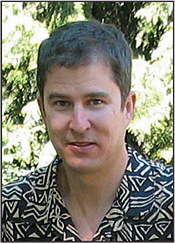PROceiver Is Tops at KIRO-TV

Pat OtisSEATTLE
Here at KIRO-TV, we've been using Modulation Sciences' PROceiver system to provide wireless audio cue channels and remote control links for several years. This technology allows us to embed IFB voice cues in our analog transmissions to assist our field reporters and technicians during live news broadcasts. It also allows us to operate robot cameras and microwave relays from our news trucks back to the downtown studios.
BETTER THAN CELL OR SAT PHONES
As we faced the shift to digital transmission, we had to replace those analog cue channels and control system, but there was no obvious solution. Cellular or satellite telephones were considered for IFB, but the quality is not as good as we've been used to from our analog PROceivers. Also, connection time is expensive and cellular telephone networks are often overwhelmed when our live news crews need them the most, such as in natural disasters and other emergencies. And in some situations, the telephone companies have completely blocked cell phone access in order to provide priority service to public safety personnel. Also, poor audio quality, drop-outs and latency of up to almost a second through a mobile telephone can often make IFB difficult for on-camera talent to hear and understand in noisy field conditions. For reliable communication with our remote news crews, we needed voice channels under our own control.
We have 10 active hilltop receive sites for signals from our news trucks, and a handful of unmanned cameras in remote locations (such as the runway at Sea-Tac Airport) that all use an audio frequency shift keying controller piggybacked on our TV signal. I was concerned that we would lose this capability when we shut down the analog transmitter. There are no telephone lines to some of those sites, and the installation cost and monthly charges to replace the wireless remotes would have been prohibitive.
We'd been using the analog PRO Channel system with our analog broadcast signal for both remote control and cues, but I was fearful that we would lose that capability when we cut over to digital. So I asked Eric Small at ModSci for help.
With less than a year before the analog TV transmitter shutoff, Eric and his technical staff developed a digital version of his company's PROceiver product that uses the MPEG audio capability included in almost every broadcast digital encoder. Each encoder channel and Digital PROceiver can handle two IFB audio channels, two AFSK remote controls, or one of each. For additional independent IFB channels, we can add more encoder cards and receivers.
ALMOST NO LATENCY
We're completely satisfied with the Digital PRO system. It uses a very low bit-rate, so there's no significant effect on the digital broadcast signal. The audio quality is far better than a mobile phone, and the latency on the audio cue channels is only about 100 ms, so the talent using the system on a live pickup really didn't notice the change from analog. It's clean, reliable and under our own control—and that's exactly the kind of changeover we wanted.
Patrick Otis joined KIRO-TV 20 years ago as an ENG truck operator, later moving into SNG. He was promoted to the position of chief engineer at KIRO-TV in 2002. He may be contacted atpotis@kirotv.com.
For additional information contact Modulation Sciences at 732-302-3090 or visitwww.modsci.com.
Get the TV Tech Newsletter
The professional video industry's #1 source for news, trends and product and tech information. Sign up below.
